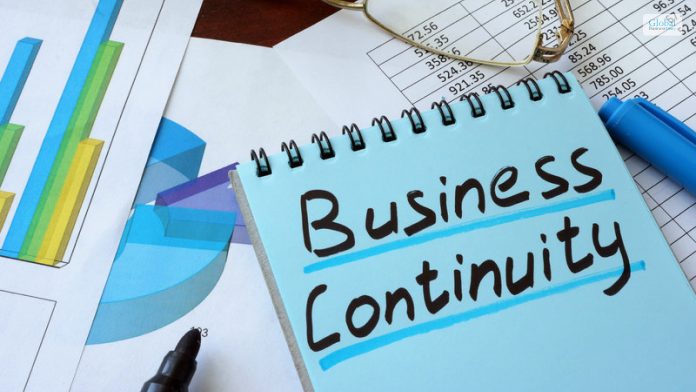The Role Of A Graduate Certificate In Business Administration For Career Advancement

Down Under, a graduate certificate is no ordinary qualification. Typically, it’s a one-semester, full-time commitment, or if you’ve got other plates spinning, it’s a part-time, one-year deal. But don’t mistake its compact nature for lack of substance. It’s like a high-octane, laser-focused skill boost in a specific area of knowledge, curated to fast-track your career aspirations.
Looking to get a leg up in the workplace? Eyeing that promotion on the horizon? A graduate certificate could be your secret weapon. It’s the perfect vehicle to hone industry-specific skillsets without the weighty cost or extended timeline of a graduate diploma or a master’s degree. This qualification strikes the sweet spot between cost-effectiveness and time efficiency, all while bolstering your career advancement prospects.
Comparing a Graduate Certificate: What’s its Equivalent in the Academic Ladder?
In terms of ranking on the Australian Qualifications Framework, a graduate certificate comfortably nestles itself at level 8, right beneath the Honours year for a Bachelor’s degree or a Graduate Diploma. It’s kind of like the “younger sibling” in the postgraduate qualification family – not quite at the top, but definitely not to be overlooked.
This robust certification, although a touch less intense than its higher-up counterparts, carries a hefty punch of knowledge and skills, all packaged up in a faster, more streamlined format. No need to clear your schedule for years on end or drain your savings account – this bad boy gets you where you need to go with time and budget intact.
Graduate Certificate vs. Bachelor’s Degree
A bachelor’s degree is an initial rung on the higher education ladder that most of us are familiar with. It’s an undergraduate degree that usually takes three to four years of continuous study, giving students a well-rounded depth of knowledge in a broad field such as Science, Business, or the Arts. However, a graduate certificate hangs a few notches above on this academic scale, securing a place at level 8 on the Australian Qualifications Framework (AQF), a position above a bachelor’s degree.
The Entry Requirements
Contrary to the common belief, a bachelor’s degree isn’t a prerequisite for enrolling in a graduate certificate program. As long as you have a certificate IV or an equivalent qualification in your field of choice, you’re good to go. To sail through a graduate certificate or level 8 qualification, you need to flaunt advanced knowledge and skills in your chosen profession. Generally, those with working experience in their field have an edge here, fulfilling this criterion with ease.
The Launchpad for Your Master’s Degree
If you’ve ever dreamed of donning the cap and gown of a master’s degree graduate, a graduate certificate could serve as your first stepping stone. It can function as a bridging qualification, opening the gates to more advanced courses, like master’s programs. However, bear in mind that not all master’s degrees offer a pathway through a graduate certificate. So, if you’re planning to dive headfirst into the realm of postgraduate studies, it’s wise to do a bit of digging beforehand.
The Benefits of Earning a Graduate Certificate in Business Administration

Check out Victoria University (VU) Online’s super handy Graduate Certificate in Business Administration. It’s a direct route to our much-loved and renowned MBA course. Taught by down-to-earth, industry-savvy academics from VU’s world-class Business School, this course covers four power-packed units.
Each unit is crafted to sharpen the essential skills for budding business leaders—think strategic management, marketing, corporate ethics, and financial analysis. Enjoy the perks of a fully online setup with flexible study options and round-the-clock access.
They’ve been rocking the business postgraduate scene for 25 years, helping a diverse range of students achieve their career dreams—be it getting promoted, a pay bump, owning a business, or becoming a leader.
Related: Higher Education And Business Triumph: What’s The Connection?
The Verdict: Why a Graduate Certificate is a Smart Choice
Stuck in a rut with your professional growth? Maybe you’ve considered further education to climb that career ladder, but the maze of choices is just too much. What’s the best way to develop your skills? Should you sink years into a master’s degree? The answer isn’t always a resounding yes. Let me introduce you to the superhero of qualifications – the graduate certificate. It’s a lean, mean upskilling machine that doesn’t require a bachelor’s degree as a starting point. Here are the reasons a graduate certificate might be your best bet:
Courses that Hit the Mark
Graduate certificates are designed to be laser-focused. Their goal? To build advanced knowledge and skills in your specific field and help you take that next career step. The good news is that they’re not here to waste your time – the six-month duration ensures that the course content and outcomes are immediately applicable and on point.
Tailoring Your Learning Journey
One of the perks of a graduate certificate is the level of control it gives you over your studies. Unlike broader postgraduate courses, a graduate certificate hones in on practical skills rather than sprawling theory. There’s no space for superfluous core units – you’re in the driver’s seat, steering your learning towards what matters most.
Powering Your Career Forward
Opting for a graduate certificate speaks volumes to your employers. It’s a clear sign of your dedication to your work and your motivation to expand your skills. Not only does it impress your current boss, but it also paves the way for career advancement within your industry.
A Win-Win: Time and Money
Graduate certificates are a feat of efficiency – packing a wallop of education into a single full-time semester. They also offer the flexibility of part-time and blended learning options, perfect for accommodating busy schedules. But it’s not just about time; they’re also kind on your wallet. You’re looking at just one semester’s worth of tuition fees, a significant saving compared to two to three years of full-time study in a postgraduate degree. And don’t forget the availability of FEE-HELP loan schemes. So, a graduate certificate isn’t just a smart choice, it’s a savvy one.
Read Also:













